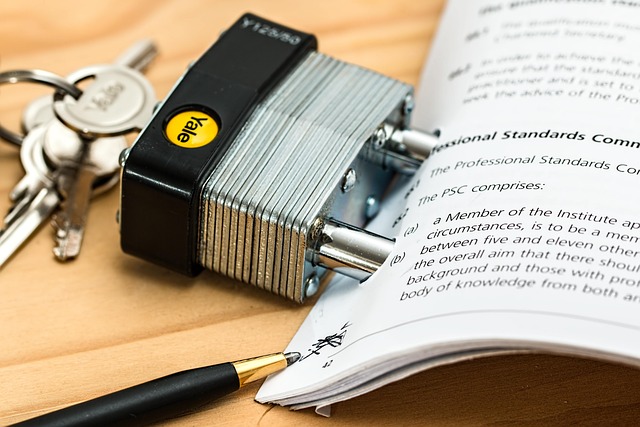Tech solutions like ADAS, mobile apps, and in-vehicle sensors play a pivotal role in preventing impaired driving, enhancing road safety globally. However, these innovations raise legal and societal challenges related to privacy and false positives. Balancing public safety with individual freedoms is crucial as these technologies integrate into traffic enforcement strategies. Strong legal frameworks are needed to address data privacy, cybersecurity, liability, and standard of care, while future prospects are promising due to advancements in sensor tech, AI, and machine learning.
“In the ongoing battle against impaired driving, technology emerges as a powerful ally. This article explores modern approaches to mitigating this pressing issue using advanced tech solutions for impaired driving detection and prevention. We delve into the challenges and legal implications of these innovations, focusing on real-time monitoring tools and their role in shaping safer roads. From technological advancements to ethical considerations, we examine how legal frameworks can future-proof our approach to tackling impaired driving.”
- Understanding Impaired Driving: Challenges and Legal Implications
- The Role of Technology in Preventing Impaired Driving
- Innovative Tech Solutions for Real-Time Monitoring
- Legal Frameworks and Regulations for Implementing Tech
- Ensuring Safety: Ethical Considerations and Future Prospects
Understanding Impaired Driving: Challenges and Legal Implications

Impaired driving, whether due to alcohol or drug use, remains a significant legal and societal challenge. As technology advances, new solutions are emerging to combat this issue, known as Tech Solutions for Impaired Driving. These innovations aim to prevent accidents caused by driver intoxication through various methods. One key approach involves the development of advanced sensors and cameras that can detect signs of impairment during traffic stops or while vehicles are in motion.
The legal implications of these tech solutions are multifaceted. They offer promising tools for law enforcement agencies to enhance road safety, but also raise concerns regarding privacy and potential false positives. Balancing public safety with individual freedoms is essential as these technologies become more integrated into traffic enforcement strategies. Effective Tech Solutions for Impaired Driving require careful consideration of both their benefits and drawbacks in the legal framework.
The Role of Technology in Preventing Impaired Driving

Technology plays a pivotal role in preventing impaired driving, offering innovative solutions to combat one of the most significant road safety concerns worldwide. With the advancement of smart vehicle systems and mobile applications, many tech solutions for impaired driving are emerging. These range from advanced driver-assistance systems (ADAS) that detect and alert drivers about potential hazards, to mobile apps that track blood alcohol levels and provide real-time feedback, ensuring safe driving.
For instance, in-vehicle sensors and cameras can monitor a driver’s behavior, detecting signs of impairment and automatically triggering safety measures like slowing the vehicle or activating emergency services if necessary. Additionally, blockchain technology can be utilized to create secure, tamper-proof records of alcohol test results, enhancing accountability and deterring individuals from driving under the influence. These tech solutions for impaired driving not only aid in prevention but also contribute to a more robust road safety infrastructure.
Innovative Tech Solutions for Real-Time Monitoring

In the pursuit of enhancing road safety and mitigating the risks associated with impaired driving, innovative tech solutions have emerged as powerful tools. Real-time monitoring systems are at the forefront of this revolution, leveraging cutting-edge technology to detect and prevent potential dangers on the roads. These solutions employ advanced sensors, cameras, and data analytics to continuously track vehicle performance, driver behavior, and environmental factors. By analyzing these data points in real time, they can identify signs of impairment or unsafe driving practices.
One prominent application is the development of smart vehicles equipped with integrated systems that monitor vital signs and driving patterns. These tech solutions for impaired driving not only alert drivers and authorities but also provide evidence for legal proceedings. With the ability to detect even subtle changes in a driver’s behavior, these technologies offer a proactive approach to road safety, ensuring that individuals and communities are protected from the devastating consequences of impaired driving.
Legal Frameworks and Regulations for Implementing Tech

The implementation of tech solutions, such as those aimed at preventing impaired driving, requires a robust legal framework to ensure their effectiveness and ethical use. Many countries have begun updating their regulations to accommodate innovative technologies like advanced driver-assistance systems (ADAS) and autonomous vehicles. These legal frameworks must address issues related to data privacy, cybersecurity, liability, and the standard of care expected from developers and manufacturers. For instance, regulations should define how personal data collected by these systems is handled, stored, and protected, preventing potential misuse or breaches that could compromise user safety.
Moreover, legal frameworks should establish clear guidelines for accountability in case of accidents involving tech-enabled vehicles. As autonomous cars become more prevalent, determining liability—between manufacturers, software developers, or even the vehicle’s occupants—will be a complex task. Effective legislation must provide a structured approach to these scenarios, ensuring that responsible parties are held accountable while fostering innovation by minimizing legal barriers to entry for tech companies.
Ensuring Safety: Ethical Considerations and Future Prospects

Ensuring safety in the realm of tech solutions, particularly regarding impaired driving, is paramount and demands meticulous ethical considerations. As we venture into an era where autonomous vehicles and advanced driver-assistance systems (ADAS) are becoming mainstream, the potential for reducing road accidents caused by human error becomes increasingly feasible. However, it’s crucial to address the ethical dilemmas that arise with implementing these tech solutions. One of the primary concerns is ensuring the safety and privacy of individuals, especially when data collection and processing play a significant role in autonomous driving. Developers must consider how to protect personal information while leveraging data analytics to enhance safety features.
The future prospects for tech solutions in impaired driving are promising, with continuous advancements in sensor technology, artificial intelligence, and machine learning. These innovations can enable vehicles to detect and respond to various driving scenarios, including identifying impaired drivers through advanced biometric sensors or recognizing hazards that humans might overlook. Moreover, ethical guidelines and regulations will shape the development and deployment of these technologies, ensuring they serve to enhance road safety without compromising individual freedoms or privacy.
The future of road safety lies in the innovative application of tech solutions for impaired driving. By leveraging real-time monitoring technologies and robust legal frameworks, we can significantly reduce the prevalence of drunk or distracted driving. As technology continues to advance, it is crucial to adapt legal regulations to ensure these solutions are ethically sound and effectively implemented. Embracing these tech advancements promises a safer future for everyone on our roads.






